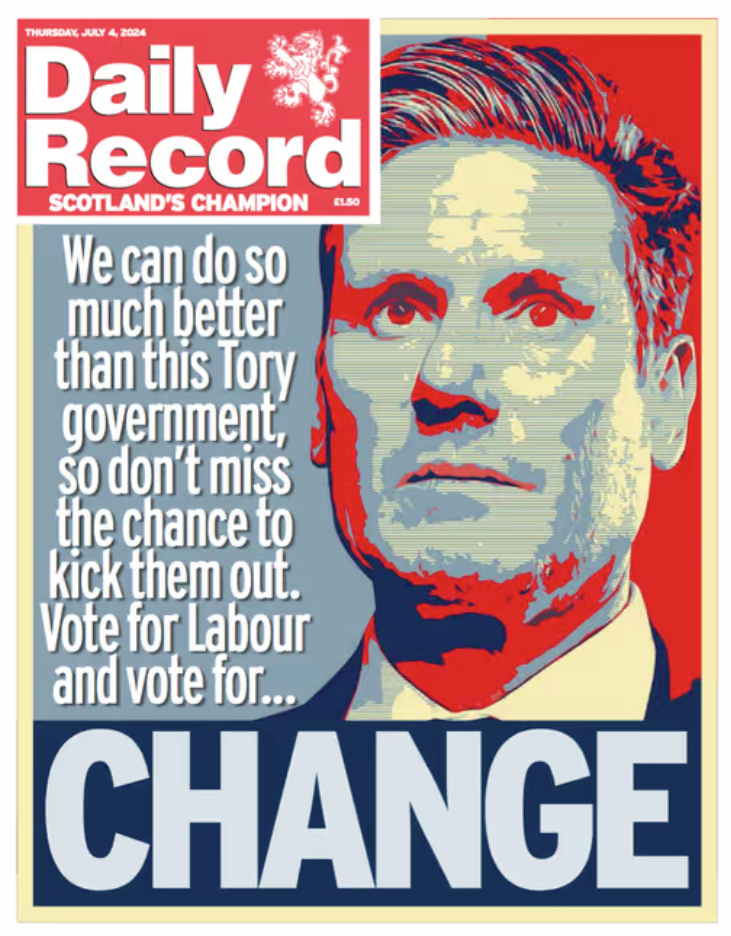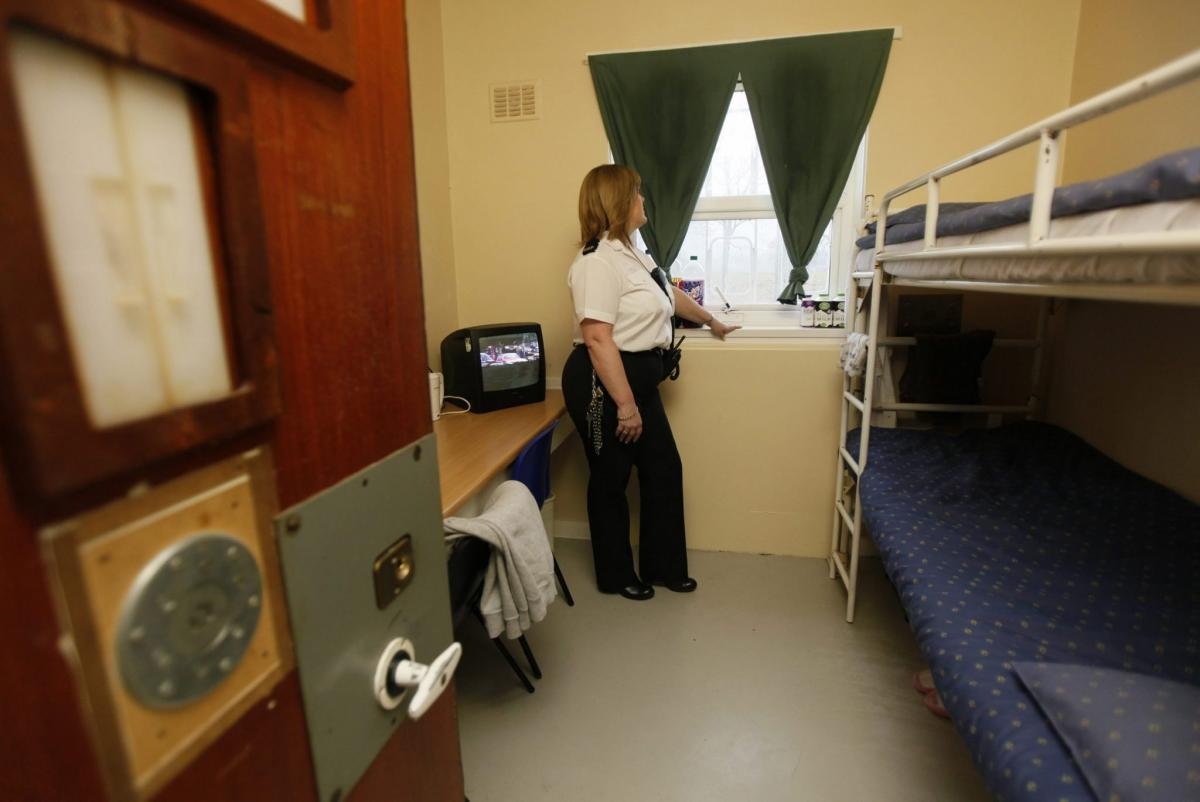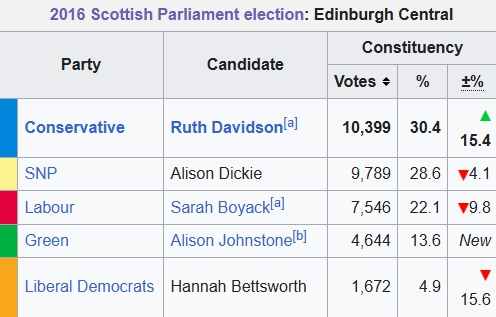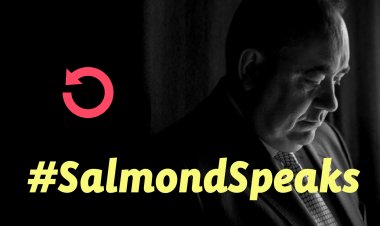Scotland's Future: A Roadmap to Scottish Independence
SNP Councillor Chris McEleny sets out a roadmap for the people of Scotland to secure their independence.

1. Purpose
To Set out a Roadmap for the people of Scotland to secure their independence.
2. Executive Summary
The Scottish Government must issue a deadline of 31st March 2021 to the UK Government, in advance of the Scottish General Election, to agree to a Section 30 request to amend schedule 5 of the Scotland Act, as per the Edinburgh Agreement of 2012.
In the event that the UK Government do not agree to the above then Pro-Independence Parties should unambiguously state that in the event of a Pro-Independence Majority of MSPs being elected to the Scots Parliament in the Scottish General Election, there will be a referendum on Scottish Independence - as sanctioned by the Scottish Parliament, which will be given popular legitimacy by the Scottish electorate via the mandate given in the 2021 Holyrood elections.
The newly formed Pro-Independence Scottish Government should then begin preparations to hold a Referendum – without the requirement of seeking the approval of the UK Government via a Section 30 Order – on Scottish Independence in the early part of the new parliament.
3. Background
3.1 A record number of electors voted for the SNP in the Constituency ballots in the 2016 Scottish Parliament Elections. The Current SNP Scottish Government were elected with a clear mandate that stated:
“We believe that the Scottish Parliament should have the right to hold another referendum if there is clear and sustained evidence that independence has become the preferred option of a majority of the Scottish people – or if there is a significant and material change in the circumstances that prevailed in 2014, such as Scotland being taken out of the EU against our will.”
In the EU Referendum of 2016, Scotland voted by 62% to 38% to remain in the European Union. Every single one of Scotland’s 32 Local Authority Areas voted to Remain in the European Union. In January of 2020, as part of the UK, Scotland left the EU despite that being against the expressed will of the people of Scotland. In December of 2020 the UK secured a trade deal with the EU which means that as part of the UK, Scotland will now be subject to a ‘Hard Brexit’.
3.2 On 28th March 2018, First Minister Nicola Sturgeon addressed the Scottish Parliament during ‘Scotland’s Choice: Independence Referendum debate’ and set out that the Scottish Government would ensure the people of Scotland were given a choice on their own future when the terms of Brexit were clear so that the terms of any Brexit Deal were not imposed upon the people of Scotland against their will. She said:
"My argument is simply this: When the nature of the change that is made inevitable by Brexit becomes clear, it should not be imposed upon us. We should have the right to decide the nature of that change. The people of Scotland should have the right to choose between Brexit – possibly a very hard Brexit – or becoming an independent country, able to chart our own course and create a true partnership of equals across these islands. If we accept – as I hope we all do – that Scotland has the right to decide our own future, the question then becomes one of timing. When is it best to make that choice? We are all agreed that now is not the time. In my view, the time to choose is when the terms of Brexit are clear – and can be judged against the challenges and opportunities of becoming an independent country."
On the 31st March 2017, First Minister Nicola Sturgeon formally requested a Section 30 order to hold a referendum on Scottish Independence.
Then Prime Minister Theresa May dismissed the mandate of the Scottish Government by saying that, "Now is not the time."
In the General Election of 2017 the SNP won a majority of seats in Scotland with a manifesto commitment that stated:
“Scotland should have a choice about our future at the end of the Brexit process. A democratic mandate for a referendum was delivered at the Holyrood election last year. The Scottish Parliament has now underlined that mandate.
If the SNP wins a majority of Scottish seats, that would complete a triple lock, further reinforcing the democratic mandate which already exists. Any continued Tory attempts to block Scotland having a choice on our future would be democratically unsustainable.”
3.3 In the 2019 EU elections the SNP won 50% of the seats in Scotland with a manifesto stating:
“We want Scotland to have the choice of a future for Scotland as an independent, European Nation”
3.4 After it started to become apparent that the UK Government would resist and obstruct a referendum on Scottish independence, Inverclyde Councillor Chris McEleny and Western Isles MP Angus Brendan MacNeil became the architects of the so called independence ‘Plan B’. Calls were made for the SNP to debate alternative strategies to achieving independence if the UK Government would not grant a Section 30 order. In the summer of 2019, McEleny and MacNeil started to build broad support for their Plan B being debated at the SNP’s Autumn conference in 2019. They wanted the SNP to use the prospect of an upcoming Westminster election to apply pressure on the UK Government ie in the event that a referendum on Scottish independence continued to be blocked after SNP success at the General election, then the 2021 Scots Parliament election would turn into a de facto referendum on Scottish independence. The debate was blocked from the SNP’s conference, with the leadership of the party urging the independence movement not to adopt a Plan B as ‘Plan A’ had momentum, and in the event of an SNP victory in the prospective UK General Election, the opposition of the UK Government to a referendum on Scottish Independence would not be sustainable.
3.5 In the 2019 UK General Election, the SNP won a landslide 48 out of 59 seats in Scotland with the key election pledge being:
“We believe that the best future for Scotland is to be an independent, European Nation….We have a clear mandate to deliver a new referendum on becoming an independent country, and we are making it clear at this election that next year we intend to offer the people of Scotland a choice over their own future. It is important to ensure a referendum is put beyond legal challenge. Before the end of the year, we will demand that the UK Government transfers the necessary powers under the Scotland Act to ensure the decisions about the referendum can be taken by the Scottish Parliament.”
On 19th December 2019, First Minister Nicola Sturgeon again requested a Section 30 order to transfer powers to the Scottish Parliament to hold an independence referendum.
On 14th January 2020, Prime Minister Boris Johnson formally rejected the request.
3.6 In the summer of 2020, McEleny and MacNeil again attempted to have the SNP debate their Plan B policy to turn the 2021 Scots Parliament elections into a de-facto referendum on Scottish independence if the UK Government continued to ignore the mandates of the Scots Parliament to hold a referendum. At the SNP’s Autumn Conference of 2020, a debate on the Independence Plan B policy was again blocked. With the SNP leadership repeating the position of previous years that a Plan B was not needed as the UK Governments (sustained) opposition to an independence referendum was not sustainable.
3.7 As of 18th December 2020, 17 opinion polls in a row had shown that a majority of people in Scotland now back independence.
3.8 On 3rd January 2021, UK Prime Minister Boris Johnson intimated that a second referendum on Scottish independence should not be staged until at least 2055, sighting the example of the period between the 1975 and 2016 referendums on Europe.
3.9 Scotland, and the rest of the world, has spent most of 2020, and now 2021, tackling the public health emergency of the Coronavirus, a pandemic that has resulted in the sad loss of many lives, unprecedented pressure on Scotland’s health services, as well as a set of economic circumstances that could not have been predicted. In January of 2020, across the UK, unemployment sat at a rate of 3.8%. Due to Coronavirus, the most recent unemployment rate – for August to October – was 4.9%, according to the ONS. The Bank of England predicts unemployment will hit 7.7% in April to June of 2021, whilst also estimating that unemployment because of Coronavirus could rise as high as 10%.
3.10 By the date of the Scottish Parliament Election in May 2021, the UK Government will have sustained opposition to agreeing to a referendum on Scottish independence after several electoral mandates having being secured since 2016 to hold such a referendum.
3.11 On January 24th 2021, The Scottish National Party will hold a virtual National Assembly to discuss tactics and strategy on the route to independence. The National Assembly of the SNP is not a decision-making body and has no constitutional ability to mandate party policy or mandate policy positions that must be incorporated in the party’s manifesto for the 2021 Holyrood election. However, the National Assembly is a potential opportunity to influence the SNP’s position in regards to allowing a debate on independence strategy / a Plan B at the SNP’s Spring Conference which should be held shortly before the Scottish Parliament election. A copy of this paper has been circulated to the National Executive Committee of the SNP, and to Keith Brown SNP Depute Leader who has responsibility for convening the National Assembly.
4. Analysis
4.1 There are four key aspects of events since 2014 that amount to the material change in circumstances that justifies the people of Scotland again considering their place in the UK:
- Scotland left the EU against the wishes of the people of Scotland on 1st January 2020. Leaving the EU represents a fundamental change in the constitutional arrangements of the country, which will be particularly damaging to Scottish interests and which will take place without the support of the people of Scotland. This damage will be further compounded by the hard Brexit deal that the UK Government have negotiated with the European Union.
- The approach of the UK Government to the process of leaving the EU has demonstrated that the views and interests of Scotland can and will be set aside, despite claims that the UK is a partnership of equals. The people of Scotland voted No to independence in 2014 following a campaign in which commitments were made that such a vote would secure Scotland's place in Europe.
- Support for Scottish independence has now become the consistent majority view of Scots in 17 opinion polls in a row.
- The economic decisions that are made this year and those that immediately follow will impact upon the lives of people in Scotland for decades. There will be two issues the UK government will address urgently:
- In the immediate term, it will be the overall level of debt that will be targeted and whether the cost of that will be met by increasing taxes or reducing expenditure.
- The second will be unemployment. When it comes to the biggest economic decisions of our lifetimes and what they are to be, it should be for the people of Scotland to decide if their Scottish Government should have the full financial levers of an independent country in order to address them, or if they believe those powers should remain with the UK Government.
4.2 It is clear that the Scottish Government have already secured a democratic mandate for the Scottish people to have a choice on their own future:
- The 2016 manifesto explicitly set out the set of circumstances in which a referendum should be held and they now prevail.
- The SNP reaffirmed this mandate in the 2017 and 2019 General Elections and at the 2019 EU elections.
- The UK Government response to an independence referendum is that this is a reserved matter. In the 2019 UK election (on reserved matters) the SNP consolidated a clear mandate from the people of Scotland for a referendum on Scottish independence.
4.3 Despite the clear mandates given by the electorate to date, the UK Government have denied a Section 30 order to temporarily amend Schedule 5 of the Scotland Act on two separate occasions. It is the stated policy objective of the UK Government to frustrate the holding of a second independence referendum even if the Scottish people democratically mandate it.
The UK Government accepted in 2011 that a mandate to hold a referendum could be communicated by the people of Scotland through elections to the Scottish Parliament and through the formation of a Scottish Government. As the then-Secretary of State for Scotland, Michael Moore said:
"This process began with the Scottish National Party's victory in the May 2011 Scottish parliamentary elections and its manifesto pledge to hold an independence referendum. From the very beginning, we recognised the political mandate that the SNP had secured for a referendum."
The current UK Government have consistently sustained opposition to a referendum regardless of any mandates the Scottish people give to hold one. The position of the UK Government is that the 2014 referendum was a "Once in a Generation" event and should not be repeated. However, the definition of a political generation is dependent on the electorate of a nation. Since the 2014 independence referendum, there have been five new UK Governments since the 1st Cameron Government that agreed to the Edinburgh Agreement with Alex Salmond in 2012. In fact, the position adhered to by the UK Government that a political statement should supersede the sovereignty of an electorate is not even backed up by the facts of the 2014 referendum campaign.
In May 2013, Alistair Darling, the Leader of the No Campaign, stated that his side needed to "win well" in order to prevent another independence referendum within just a few years, to head off calls for another poll. He contrasted his campaign's position with that of Yes Scotland, saying they had to win only "by one vote" to achieve their ultimate aim. Although Darling did not say what percentage of the vote "win well" would entail, his colleagues had earlier said that the Yes vote would need to be pushed under 40% in order to answer the independence question for "a generation". The people of Scotland voted 45% in favour of independence in 2014, beating the Better Together Campaigns own test for another referendum to be held within a few years.
4.4 Before the 2014 independence referendum, the leaders of the parties in Scotland campaigning against independence made a joint statement supporting Scotland's right to choose. In a Joint statement by the leaders of the Scottish Conservatives, Scottish Labour Party and Scottish Liberal Democrats in June 2014 they said:
"Power lies with the Scottish people and we believe it is for the Scottish people to decide how we are governed."
Further, after the SNP won the 2011 Scottish Parliament elections, the UK Government accepted the Scottish Government's mandate and accepted that it was based on the SNP manifesto pledge for a referendum on independence.
In January 2012, in a consultation on an independence referendum in Scotland, the then Prime Minister and Deputy Prime Minister said:
"The Scottish National Party entered the May 2011 election with a manifesto pledge for a referendum on independence. They have campaigned consistently for independence, and while the UK Government does not believe this is in the interests of Scotland, or the rest of the United Kingdom, we will not stand in the way of a referendum on independence: the future of Scotland's place within the United Kingdom is for people in Scotland to vote on."
This understanding of the constitutional position of the people of Scotland within the United Kingdom is not seriously disputed. It has long been accepted by successive UK Governments, and by the wider political community, that the people of Scotland have the right to determine Scotland's continued place in the UK. The Claim of Right for Scotland, signed in 1989 by a range of leading figures and organisations from across political and civic life in Scotland, begins by acknowledging:
"The sovereign right of the Scottish people to determine the form of Government best suited to their needs."
The Claim of Right has since been recognised and endorsed by both the Scottish Parliament on 26 January 2012 and the UK Parliament on 4th July 2018. Scotland's continuing participation in the Union is based on the ongoing agreement and consent of the people that live in Scotland said then UK Prime Minister Theresa May on 4th July 2019.
This is because the United Kingdom is not a unitary nation-state; it is a Union state. It is a multi-national country whose constituent parts enjoy different constitutional settlements and rights.
Even those that support Scotland's continuing place in the Union recognise Scotland's right to choose. Following the independence referendum in 2014, the Smith Commission brought together the political parties represented in the Scottish Parliament to agree proposals for further devolution. The Smith Commission took place in the context of all participants accepting the outcome of the independence referendum, and of three of the five parties represented having campaigned for Scotland to stay part of the United Kingdom. Nevertheless, under its heads of agreement, the Commission concluded the following key point:
"It is agreed that nothing in this report prevents Scotland becoming an independent country in the future should the people of Scotland so choose."
4.5 Currently the position of the SNP is that by repeating the same events of the past few years, and securing one more electoral victory, the opposition of the UK Government will become unsustainable and a Section 30 order will be granted. There is however no evidence to support this claim, in fact, contrary to this position, the UK Government has sustained its opposition to a referendum, repeatedly, after successive SNP victories that gained successive mandates to hold a referendum on Scottish independence.
4.6 It is the firm view of the author of this paper, and many people across the independence movement, including many senior SNP parliamentarians who will state so privately but not publicly, that if the SNP win a majority in the 2021 Holyrood elections seeking yet another mandate to hold a referendum that is reliant on the UK Government agreeing to it that the UK Government will simply keep saying, "No" to a Section 30 order since the Scottish Government have made it clear that it is their policy position that there should only be a referendum if it is sanctioned via a Section 30 order granted by the UK Government. It must also not be ruled out that the UK Government would simply ‘game’ the situation by offering to grant a Section 30 request with unpalatable caveats such as on required turnouts, thresholds, and the franchise (similar to the 1979 referendum) such as denying a vote to EU nationals that live in Scotland.
4.7 The Scottish Government have existing mandates to give the people of Scotland a choice on their future. It is clear from the past few years that the current UK Government will not respect past precedents, therefore it is incumbent of the Scottish Government to secure the right of the people of Scotland to determine their own future without relying on the consent of the UK Government.
In ‘Scotland's right to choose: putting Scotland's future in Scotland's hands’ published by the Scottish Government on 19th December 2019, the Scottish Government proposed legislation that would facilitate a referendum on Scottish independence. However, these proposed changes were to the Scotland Act 1998. It is my clear conclusion that if the strategy to deliver a test for the people of Scotland to evidence their preference for Scotland to be an independent country relies on a majority of votes in the House of Commons supporting legislation proposed by the SNP, then for as long as the UK Parliament contains a majority of MPs that are opposed to a referendum on Scottish independence then Scotland will not become an independent country.
The 2021 Holyrood Elections must not be an election in which the SNP seeks to win a mandate for the people of Scotland to have a choice on their own future – several such mandates have already been issued by the people of Scotland.
Had the SNP allowed a debate on alternative strategies/ a Plan B to put to the test the issue of whether the people of Scotland wished to become independent, then the Scottish people could have expressed that choice at this year’s Scottish Parliament Election by turning that election into a referendum on Scottish independence. However, that opportunity has now been missed.
The UK Government are clear in their position – the people of Scotland and their Scots Parliament do not have the right to determine their own future without the express agreement of the UK Government.
Therefore in order that the outcome of this year’s election to the Scottish Parliament allows the case for Scottish independence to be progressed, as opposed to another mandate simply being blocked by the UK Government, it is now vital for the SNP to seize the initiative.
The UK Government says that the people of Scotland and their Parliament do not have the right to legislate for a referendum on Scottish independence, the pro-independence movement of Scotland says Yes we do.
The SNP will not turn this year’s Scottish Parliament election into a de-facto referendum on Scottish independence, therefore it must be a referendum on whether or not the Scottish Parliament has the legitimacy and the popular authority of the people to hold a referendum on Scottish independence.
In short, Boris Johnson says the people of Scotland don’t have the right to determine their own future and their parliament has no right to give them that choice, the pro-independence parties must be clear that by the people of Scotland returning a Pro-Independence majority they are saying yes we do have that right.
If the Pro-independence parties win that case, and it is endorsed by the Scottish people, the Scottish Government must no longer progress with the strategy that holding a referendum on Scottish independence is contingent on the UK Government issuing a Section 30 order to approve it – the Scottish people will have said otherwise.
5. Roadmap to Independence
5.1 Currently, refusing to grant a Section 30 order is a consequence-free act for the UK Government. The Scottish Government must not view a Section 30 order as the only way the people of Scotland can be granted a choice on their own future. It has not been established that the Scottish Parliament does not have the competency to hold a referendum. The Section 30 order was but a mechanism used in 2012 to put beyond doubt the legitimacy of the 2014 referendum.
In advance of the Holyrood elections in 2021, the Scottish Government must set a deadline for the UK Government to agree to grant a Section 30 order by 31st March 2021. If the UK Government refuse to grant the Section 30 order by this date then the Scots Parliament elections must be contested with that knowledge assisting the people of Scotland so that it is then beyond doubt what they will be casting their votes for.
5.2 In the event that the UK Government do not meet the deadline set by the Scottish Government, pro-independence parties must enter the Holyrood elections clearly setting out that in the event of a pro-independence majority of MSPs being elected to the Scottish Parliament then this will be a mandate for the Scottish Government to hold a referendum on Scottish independence. Safe in the knowledge that the UK Government will not support the referendum, the Scottish People will give popular legitimacy to their parliament legislating for a referendum by electing a Pro-independence majority of MSPs.
5.3 A referendum deemed lawful by Scotland’s Lord Advocate, and Sanctioned by Scotland’s parliament as per the mandate of the Scottish people will be a competent and lawful referendum.
The Scottish Government must then implement the mandate of the electorate by legislating in the Scottish Parliament to hold a referendum on Scottish independence and deliver that referendum regardless of whether or not it has the support of Boris Johnson and the UK Government.
What's Your Reaction?















































